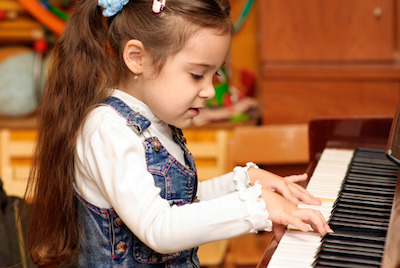Practice. Practice. Practice.
As parents, we push our kids to be the best they can be. That means ensuring homework is done every night. That means getting in quality practice for each activity they take on.
But when is enough, enough?
When should you say NO to practice, because doing so will actually work against what you’re trying to achieve? 
When a child is exhausted
Our kids are busier than ever before. And sometimes they come home after a long day at school and are simply too tired to do high quality work. As a parent, you know when your child has reached their limits. Attempting to get a child to practice when they are physically or emotionally tired will only result in frustration.
If you push, you won’t see high quality results. And the more you push, the more likely they will be to hate the piano rather than love it.
As a punishment
Sometimes we create lists of to-do’s to ensure everything is completed in a timely manner. The problem with putting things on a to-do list is it becomes a chore. Piano playing should be something a child enjoys. If you push lessons or practice on them as something they have to do instead of something they should enjoy, you’ll be fighting an uphill battle. Piano playing is a happy activity that gives them peace and enjoyment after the busy days they’ve had.
A rushed activity
Remember how well you did with homework you’ve tried to cram in before heading off to a class? Piano practice isn’t something you rush to do before you head off for lessons. Piano practice is something to improve your skills and help you become a better player. If parents feel rushed or stressed about fitting everything in, a child will too.
A frustration
Children sense our stressors. They know when we’re happy … and when we’re not. If you don’t feel your child is making headway with their lessons, try not to bring that up to your child. Don’t correct them or point out their mistakes. In most cases, they already know. If you trust the piano teacher you’ve selected, let them teach in their own manner. If a teacher isn’t working for your child’s temperament, find someone else. Finding a way to make it a joyful experience will always win out.
Want your child to love piano for many years to come? Give them everything they need to succeed. Have a question? We’re here to help.

